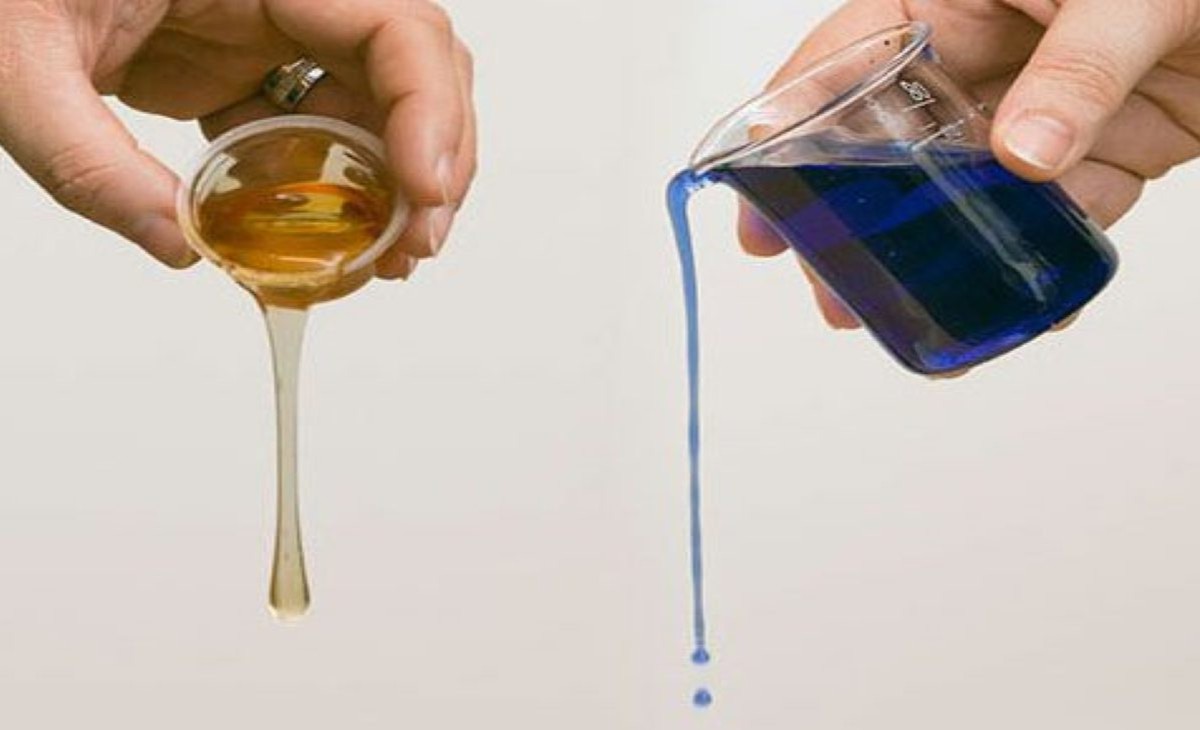
Viscosity is a term often heard in science class, but what does it really mean? In simple terms, viscosity measures how thick or sticky a fluid is. Think of honey and water. Honey flows slowly because it has high viscosity, while water flows quickly due to its low viscosity. Why is viscosity important? It affects everything from how your car engine runs to how paint spreads on a canvas. Understanding viscosity can help in everyday tasks and even in specialized fields like engineering and medicine. Ready to dive into some fascinating facts about viscosity? Let's get started!
What is Viscosity?
Viscosity measures a fluid's resistance to flow. Think of it as the "thickness" or "stickiness" of a liquid. Here are some fascinating facts about viscosity that will make you see liquids in a whole new light.
- Honey has a higher viscosity than water, making it flow slower.
- Motor oil's viscosity changes with temperature; it thickens in the cold and thins out when hot.
- Blood's viscosity is crucial for proper circulation in the human body.
- Lava's viscosity determines how explosive a volcanic eruption will be.
- Syrup flows slower than milk due to its higher viscosity.
Measuring Viscosity
Understanding how to measure viscosity helps in various industries, from food production to automotive engineering.
- The unit of viscosity in the metric system is the Pascal-second (Pa·s).
- A viscometer is a device used to measure a fluid's viscosity.
- The most common viscometer is the capillary viscometer, which measures how long it takes a liquid to flow through a thin tube.
- Another type of viscometer is the rotational viscometer, which measures the torque required to rotate an object in the fluid.
- Viscosity can also be measured using a falling sphere viscometer, where the time it takes for a sphere to fall through the liquid is recorded.
Viscosity in Everyday Life
Viscosity plays a role in many everyday activities and products.
- Shampoo's viscosity ensures it stays in your hand and doesn't run off too quickly.
- Paint's viscosity affects how well it spreads on a surface.
- Ketchup's viscosity makes it challenging to pour, leading to the classic bottle shake.
- Toothpaste's viscosity allows it to stay on your toothbrush without dripping.
- Ice cream's viscosity affects its creaminess and how it melts in your mouth.
Viscosity and Temperature
Temperature has a significant impact on a fluid's viscosity.
- Heating honey makes it less viscous, allowing it to flow more easily.
- Cold temperatures increase the viscosity of motor oil, making it harder for engines to start in winter.
- Water's viscosity decreases as it heats up, making hot water flow faster than cold.
- Glass is technically a very high-viscosity liquid, which flows extremely slowly over centuries.
- The viscosity of magma affects how it erupts from a volcano; hotter magma is less viscous and flows more easily.
Fun Facts About Viscosity
Some surprising and fun facts about viscosity might just blow your mind.
- Silly Putty's viscosity changes depending on how fast you stretch it.
- Oobleck, a mixture of cornstarch and water, acts like a solid when you apply pressure but flows like a liquid when you don't.
- The Guinness World Record for the longest-lasting drop of pitch (a very high-viscosity liquid) took over 69 years to fall.
- Ketchup is a non-Newtonian fluid, meaning its viscosity changes under stress.
- Liquid glass, used in some art installations, can take years to fully settle due to its high viscosity.
Industrial Applications of Viscosity
Viscosity is crucial in many industrial processes, affecting efficiency and product quality.
- In the food industry, controlling viscosity ensures products like sauces and dressings have the right texture.
- In the pharmaceutical industry, viscosity affects the delivery and absorption of liquid medications.
- The oil industry relies on viscosity measurements to refine crude oil into usable products.
- In the cosmetics industry, viscosity affects the application and feel of lotions and creams.
- Adhesives' effectiveness often depends on their viscosity, ensuring they stick properly.
Viscosity in Nature
Nature showcases viscosity in various fascinating ways.
- Spider silk has a unique viscosity that allows it to be both strong and stretchy.
- Tree sap's viscosity helps protect trees by sealing wounds and trapping insects.
- The viscosity of mucus in animals helps trap dust and pathogens, protecting respiratory systems.
The Final Stretch
Viscosity is more than just a scientific term. It affects everyday life in ways you might not have realized. From the way honey drips off a spoon to how motor oil keeps your car running smoothly, viscosity is everywhere. Understanding it can help you make better choices, whether you're cooking, driving, or even just pouring syrup on pancakes.
Knowing these 33 facts about viscosity can give you a new appreciation for this fascinating property. It’s not just about thick or thin liquids; it’s about how they move and interact with the world around them. Next time you see something flow, you’ll know a bit more about what’s going on behind the scenes.
So, keep these facts in mind. They might just come in handy in the most unexpected ways.
Was this page helpful?
Our commitment to delivering trustworthy and engaging content is at the heart of what we do. Each fact on our site is contributed by real users like you, bringing a wealth of diverse insights and information. To ensure the highest standards of accuracy and reliability, our dedicated editors meticulously review each submission. This process guarantees that the facts we share are not only fascinating but also credible. Trust in our commitment to quality and authenticity as you explore and learn with us.
